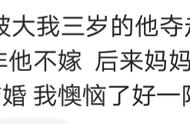
@外语教师联盟

教学背景
本单元话题——健康生活(A healthy life)。本单元以Global warming 为主线,旨在通过单元教学使学生经过思考、学习,认识到全球变暖的起因和它所带来的种种后果。同时鼓励学生进一步阐述地球所面临的其它严重问题,激发学生的环保意识。引导学生运用所学语言、句式表达自己对这些现象的看法,培养他们为自己的观点辩论的能力,并能运用所学知识写一篇有关环境问题的论文。
疑难追踪
1
Make a list of the things that consume energy in your home, school, or any other places you can think of.
P33
难句解读
列举一些如家、学校等你能想到的消耗能源的地方。
常用短语make a list of是“列清单”的意思。consume为及物动词,是“消费;消耗;耗尽;吃完”之意。此外,consume还可作“烧毁;毁灭”讲。
例如
Make a list of 10 things which you like doing most?
写一张清单,列出10件你最喜欢做的事情。
I must make a list of things to buy.
我得列个购物清单。
The car consumes a lot of fuel.
这辆汽车很费汽油。
The electricity industry consumes large amounts of fossil fuel.
电力工业消耗大量的矿物燃料。
She consumed most of her time in reading.
她把大部分时间都花在读书上。
The fire quickly consumed the wooden hut.
火焰很快地吞噬了那所小木屋。
The small village was consumed with flood.
那个小村庄被洪水吞噬了。
难点深究
consume的名词形式为consumer,是“消费者;顾客”之意;consuming为形容词,是“令人着迷的;重要的;强烈的”的意思。
例如:
consumer demand/rights
消费者的需求/权利
Consumers are encouraged to complain about faulty goods.
要鼓励消费者对劣质商品投诉。
Building model trains is his consuming passion.
制作模型火车是他废寝忘食的爱好。
2
An energy source is “renewable” when supplies of it never run out and “non renewable”when one day they will run out.
P34
难句解读
我们称用之不竭的资源为“可更新能源”,称最终会枯竭的资源为“不可更新能源”。
run out是“用尽,没有了”之意,为不及物动词短语,无被动形式。
例如
Time is running out for the trapped miners.
被困矿工的时间不多了。
The petrol is running out.
汽油快用光了。
难点深究
run out,run out of的区别:
run out作不及物动词使用,表示become used up(被用完了)的被动含义。其主语通常是时间、金钱、食物等无生命名词;run out of 是三词组成的短语动词,作及物动词用,须接宾语,表示use up(用完)的主动含义,主语只能是人,可用被动形式。
例如:
Their gas is running out.
他们的汽油快用完了。(Their gas has been run out.则是错的)
Her money has ran out.
她的钱很快就用完了。
They has run out of gas./Their gas has been run out of.
他们的汽油用完了。
He is always running out of money before payday.
他老是发工资日子还没到就把钱用完了。
3
That probably doesn’t seem much to you or me,but it’s a rapid increase when compared to other natural changes.
P34
难句解读
那可能对于你或我来说似乎没什么,但是当比起其他自然变化来,它却是一个陡然的增长。
increase在此为名词,是“增加,增长”之意;此外,当increase作不及物动词时,是“增长,增加,提高”之意;当increase是及物动词时,作“使增长,提高,增加”讲。例如
Crime is on the increase.
犯罪率正在增加。
The population of this country has increased by 5 percent.
这个国家的人口增长了5%。
Our coal output has increased to 6 million tons this year.
我们今年煤炭产量增长到了600万吨。
He increased the size of his company year by year.
他逐年扩大了他的公司规模。
compared to在此为过去分词短语作状语,是“比起……来;与……比较起来”之意,与compared with意义相同。
例如
At present,compared to/with developing countries,developed countries have made more greenhouse gases.
目前,比起发展中国家来,发达国家排放的温室气体更多。
Generally speaking, compared to/with boys girls learn English well.
一般来说,比起男孩子来,女孩子们英语学得更好。
难点深究
注意compare… to…与compare…with…区别:
compare…to…把……比作……;compare…with…把……和……进行比较。例如:
People often compare children to flowers.
人们常把孩子比作花朵。
Please don’t compare China with Taiwan,because it is only one province of China.
请别把中国和台湾进行比较,因为它仅仅是中国的一个省份。
increase by与increase to的用法区别:
increase by 倍数或百分数,表示“增加了……倍或百分之几”;increase to 具体增长的数字,表示“增加到了……”。
例如:
The rate of inflation increased by 1.5%.
通货膨胀率增长了1.5%。
The population has increased from 1 million to 1.5 million.
人口已从100万增加到了150万。
4
So how has this come about and does it matter?
P34
难句解读
那么这是怎么发生的,且有多么重要吗?
短语come about是“发生;造成”之意。
例如
Can you tell me how the accident came about?
你能告诉我事故是怎么发生的吗?
How did it come about that she knew where we were?
她是怎么知道我们在什么地方的呢?
有关“发生”的词或短语有:
break out(战争、火灾等)爆发,(瘟疫)突然发生;
happen发生,碰巧(指偶然性);
chance同happen,正式用语;
take place发生,常指经过安排、按计划进行的。
例如
They had escaped to England shortly before the war broke out in 1938.1938年
战争爆发前不久他们逃到了英国。
They chanced be staying at the same hotel.
他们碰巧住在同一家旅馆。
Great changes have taken place in China in recent 30 years.
近30年来中国发生了巨大的变化。
难点深究
关于come的短语有:
come across偶遇,穿过;
come back回来;
come down降下,减低;
come in进来,到达;
come out出来,出版;
come up上来,被提出讨论,发芽;
come up with追上,赶上;
come to结果达到,苏醒。
5
There is no doubt that the earth is becoming warmer and that it is human activity that has caused this global warming rather than a random but natural phenomenon.
P34
难句解读
毫无疑问,地球正在变暖.全球变暖是人为的,而不是随意的自然现象。
本句中前两个that分别引导两个并列的同位语从句,在从句中不但当成分,不可省掉。第三个that是强调句型it is…that…,被强调部分human activity是句子的主语。doubt“疑问;疑惑”,为名词,后接由that或whether/if 引导的同位语从句,that从句一般用于否定句或疑问句中;而whether/if从句一般用于肯定句中。doubt作动词用时亦如此。
例如
Is there any doubt that the factory has poured quantities of polluted water?
那个工厂排放了大量的污水难道还有疑问?(句中that引导同位语从句)
There is some doubt whether/if the USA will really contribute to keeping the global from warming.
美国是否会为抑制全球变暖做出贡献还不一定。
rather than/rather…than而不是;与其……倒不如;是……而不是。
例如
He would fail the exam rather than cheat in it.
他宁可考试不及格也不愿作弊。
She is a doctor rather than a nurse.
她是一个医生而不是护士。
random为形容词,意为“任意的,随意的,胡乱的”。(只作定语)
例如
She made a random choice among the books.
她胡乱地挑选了几本书。
This is just a random sample from their products.
这仅仅是对他们产品的一个随机抽样。
phenomenon为名词,意为“现象”,其复数形式为 phenomena。
例如
The rainbow after raining is a natural phenomenon.
雨后的彩虹是一种自然现象。
Terrorism is a phenomenon of the 20th century.
恐怖主义是20世纪的现象。
6
All scientists subscribe to the view that the increase in the earth’s temperature is due to the burning of fossil fuels like coal,natural gas and oil to produce energy.
P34
难句解读
所有的科学家都赞同这个观点,地球温度升高是由于燃烧像煤、天然气和石油等化石原料所产生的热能的缘故。
短语subscribe to是“同意;赞成;订购”之意。subscribe作不及物动词时,是“同意,捐赠,订阅”之意;作及物动词时,是“(签署)文件;捐助”的意思。
例如
My boss has subscribed to my opinion.
老板赞同我的观点。
The retired teacher subscribes to some magazines every year.
那位退休的教师每年都订购一些杂志。
More and more people are refusing to subscribe to his point of view.
越来越多的人不赞成他的观点。
Please subscribe your name to the application.
请在申请表上签名。
Zhao Benshan subscribed two million yuan to Yushu earthquake region.
赵本山为玉树地震灾区捐款两百万元。
短语due to是“应归于,欠款,由于”之意,不用于句首。
例如
The wage due to him will be paid tomorrow.
欠他的工资,明天付给他。
Most of the problems were due to human error.
多数问题都是由于人为的错误造成的。
Her success is due to her parents’ help.
她的成功应归功于她父母的帮助。
7
The problem begins when we add huge quantities of extra carbon dioxide into the atmosphere.
P34
难句解读
当我们向大气层中排放了大量额外的二氧化碳时,麻烦就开始了。
短语quantities of是“许多的,大量的”之意。quantity为名词,是“量,数量”的意思。
例如
Great quantities of water have been carried to Yunnan Province.
大量的水已经运往云南了。
He prefers quantity to qualty when food is concerned.
关于食物他讲究量不讲究质。
难点深究
quantities of,a quantity of 的区别:
quantities of后可接复数名词,也可接不可数名词,谓语动词都用复数形式;a quantity of“大量的”,后接单数名词,谓语动词用单数形式,其后接复数名词,谓语动词用复数形式。
例如:
There is a large quantity of milk.
这里有大量的牛奶。
There are large quantities of books in the library.
图书馆里有很多书。
Great quantities of farmerworkers have crowded into cities to seek jobs.
大量的农民工涌向城市找工作。
8
It means that more heat energy tends to be trapped in the atmosphere causing the global temperature to go up.
P34
难句解读
它意味着更多的热将被困在大气层中,从而引起全球的气温上升。
mean在此为动词,是“意味着,意指”的意思,其后常接名词、代词、从句或动名词作宾语;当作“打算,意欲”讲时,后接动词不定式;作“意思是”讲时,后不用动名词作宾语。
例如
Missing the train means waiting for two hours.
赶不上这趟火车意味着再等两个小时。
I didn’t mean to discuss this problem again.
我不打算再次谈论这个问题。
The red light means “stop”.
红灯的意思是停。
tend作不及物动词时,作“趋向;易于;照顾”讲,作及物动词时,是“照顾;护理”的意思。tend的常用搭配有:tend to do sth.有……的倾向,有……的习惯,往往;tend to sb./sth. 照顾,照看某人/物。tendency是其名词形式,作“趋势,趋向,偏好”讲。
例如
Women tend to live longer than men.
女人往往比男人长寿。
I tend to go to bed earlier during the winter.
我在冬天常睡的较早。
Doctors and nurse tended to the injured.
医生和护士护理伤员。
shepherds tending the sheep
照管羊的牧人
There is a growing tendency for people to work at home instead of in offices.
人们在家里而不是在办公室里工作的趋势日益增长。
trap为动词是“诱捕;使……陷入困境;留住”之意。be trapped in被困于;trap sb. (into sth./into doing sth.) 使中计,使上当。
例如
He felt he had been trapped into accepting the terms of contract.
他觉得自己是中了圈套才接受这合同条款的。
They were trapped in the burning building.
他们被困在燃烧着的楼房里。
The keeper trapped the monkey in a cage eventually.
饲养员终于把那只猴子关进笼子里了。
短语go up是“上升;增长(尤其指价格,温度)”之意。
例如
The price of oil is going up.
石油价格在上涨。
难点深究
mean还可作形容词,是“吝啬的,自私的”之意;means为名词(单复数同形),是“方法,手段,工具”之意;meaning为名词,作“意思,含义”讲。
例如:
Shylock is very mean with his money.
夏洛克在金钱方面很吝啬。
All possible means have been tried.
一切办法都试过了。
You can’t say that these sounds have no meaning.
不能说这些声音全无意义。
有关“上升、上涨”的词或短语及其区别:
rise(rose,risen)为不及物动词,指“水平,数量增加,(自然上升)”;
raise为及物动词,是“提升,提起,举起(主语的动作要作用于其他事物),饲养,养育”之意。试比较:
Housing prices have risen surprisingly recently.
最近房价上涨得很惊人。
The river has risen (by) several meters.
河水上涨了好几米。
The sun rises in the east.
太阳从东方升起。
She raised the gun and fired.
她举起枪射击。
We raised our glasses to him.
我们举杯向他祝贺。
9
They also agree that it is the burning of more and more fossil fuels that has resulted in this increase in carbon dioxide.
P34
难句解读
他们还赞同下述观点:正是由于越来越多的燃烧化石燃料导致了二氧化碳的增加。
本句句式结构分析:第一个that引导宾语从句,在此可省略。第二个that是强调句型,不可省。短语result in是“导致,造成(结果)”之意。result的其他短语或搭配还有:
result from 因……而导致(原因);
as a result结果是;
as a result of 作为……的结果,因为。
例如
The earthquake in Yushu has resulted in over two thousand deaths.
玉树地震已造成两千多人死亡。
Job losses resulted from the global crisis.
失业是全球金融危机造成的。
She has worked very hard, as a result, she has been admitted into a key university.
她学习一直很努力,结果,被一所重点大学录取了。
We finished the work on time as a result of your help.
由于你的帮助我们准时完成了工作。
10
On the other hand,there are those,like George Hambley,who are opposed to this view and believe that we should not worry about high levels of carbon dioxide in the air.
P34
难句解读
另一方面,也有像乔治·汉布利的人反对这种观点。他们认为我们不应该担心空气中的二氧化碳的含量。
本句为who引导的非限制性定语从句,先行词是those。oppose为及物动词,是“反对,抵制(后接V-ing),与(某人)较量”的意思;opposed为形容词,是“反对的,对立的”的意思,常用表达be opposed to是“反对……”的意思;opposing亦为形容词,是“对立的,对抗的,相反的”的意思。
例如
I would oppose changing the law.
我将反对改变这个法规。
Most of us are opposed to this plan.
我们多数人反对这个计划。
11
They predict that any warming will be mild with few bad environmental consequences.
P34
难句解读
他们预言任何变暖都将是缓慢的,不会带来恶化环境的结果。
mild为形容词,是“温和的,温柔的,淡的”之意。consequence为名词,是“结果,后果,影响”之意。
例如
He’s the mildest man you could wish to meet.
他是最柔和的人了。
Use a soap that is mild on the skin.
使用对皮肤刺激性不强的香皂。
mild cheese
淡味奶酪
Don’t worry.It is of no consequence.
别担心,没什么重要的。
You must take the consequences if you don’t do your duty.
如果你不尽职你必须承担严重的后果。
She has lost her memory in consequence of the accident.
她因那次车祸而失去了记忆。
难点深究
consequent是consequence的形容词形式,作“随之发生的,作为结果的”讲;consequently为副词,是“所以,因而”的意思。
例如:
the lowering of taxes and the consequent increase in spending
税收降低与随之引起的消费增长
My bike broke down and consequently I was late.
我的自行车坏了,所以我迟到了。
有关consequence的短语或词组有:
in consequence(=as a result)结果是,因此;
in consequence of (=as a result of)由于……缘故,作为……的结果;
accept/take the consequences 承担后果。
例如:
He studied hard, and in consequence he passed the exam.
他努力学习,因此通过了考试。
The child was born deformed in consequence of an injury to its mother.
由于母亲受过伤,这小孩生下来是畸形。
12
It will make plants grow quicker,crops will produce more;it will encourage a greater range of animals—all of which will make life for human beings better.
P36
难句解读
它使植物生长得更快;庄稼产量更高;将会有助于扩大动物的活动范围,所有这一切都会使人类生活更好。
range为名词,是“种类,范围”的意思。
例如
Most of the students are in the 16—19 age range.
大多数学生的年龄介于16岁至19岁之间。
This was beyond/ out of the range of his experience.
这超出了他的阅历。
难点深究
range为及物动词,作“(在一定范围内)变化,变动;(按一定位置)排列”讲。
例如:
troops ranged facing each other
面对面排列的部队
They have TV set whose prices range from 2000 yuan to 20000 yuan.
他们有价格从2000元到20000元的电视机。
13
Even if we start reducing the amount of carbon dioxide and other greenhouse gases,the climate is going to keep on warming for decades or centuries.
P38
难句解读
即使我们开始减少二氧化碳和其他温室气体的数量,气候还会在未来十几年或几个世纪持续变暖。
even if/though“即使;尽管”,引导让步状语从句。短语keep on是“继续”的意思。
例如
I’ll get there,even if/though I have to walk.
我就是走也要走到那里去。
Even if/though he often feels tired,he lives a full life.
尽管他时常感到累,但他过得很充实。
Prices of oil keep on increasing.
石油的价格一直在上涨。
难点深究
关于keep的常用搭配意义及用法:
keep on doing sth.继续干某事;
keep doing sth.一直干某事;
keep sb. from doing sth. 阻止某人干某事;
keep sb. doing sth.让某人连续干某事。
例如
He kept standing there for half an hour without moving.
他一动不动在那儿站了半个小时。
He kept the truth from us.
他对我们隐瞒了真相。
She kept herself from laughing.
她忍住没笑出声来。
The teacher kept the student standing for half an hour.
老师让那个学生连续站了半个小时。
14
On the whole the warming of the earth is a phenomenon that causes great concern.
P38
难句解读
总体来说全球变暖现象引起了极大的关注。
短语on the whole是“大体上,基本上”之意。与其表达近似意义的词还有all in all(总的说来), altogether(总共,完全),in general(通常,一般而言,大体上),by and large(总的来说,一般来说)。
例如
The two buildings are similar on the whole.
从整体来看,这两幢楼是相似的。
On the whole I agree to your proposal.
我基本上同意你的建议。
Your thesis is well done on the whole.
你的论文基本上写得不错。
15
I am doing a project on behalf of my school about global warming.
P38
难句解读
我正在代表学校做一项有关全球变暖的项目。
短语on behalf of是“代表……一方;作为……的代言人”之意,也可说成on one’s behalf。
例如
I greet you on behalf of my parents.
我将代表我的父母亲向你表示问候。
On behalf of my colleagues and myself I thank you.
我代表我的同事以及我自己向你表示谢意。
Mr. White can not be here, so his wife will accept the prize on his behalf.
怀特先生不能来,所以他的妻子将代表他来领奖。
16
However, I still think people should advocate improvement in the way we use energy today.
P38
难句解读
然而,我依然认为人们应该提倡改善我们现在使用能源的方式。
advocate为及物动词,是“主张,提倡,拥护”之意,其后常接V-ing形式;advocate也可作名词,是“辩护人,拥护者,提倡者”的意思。
例如
They don’t advocate building a big chemical factory by the lake.
他们不主张在湖边建大型化工厂。
The Chinese people advocate the leadership of the Chinese Communist.
中国人民都拥护中国共产党的领导。
an advocate for hospital workers
医院工作人员的支持者
We are all the advocates of the Party.
我们都是中国共产党的拥护者。
17
We don’t have to put up with pollution.
P38
难句解读
我们不必忍受污染。
短语put up with是“容忍,忍受”的意思,其意义相当于live with sth./sb.。
例如
I don’t know how she puts up with him.
我不知道她怎么受得了他。
She found it difficult to put up with the pain.
她发现很难忍受那种疼痛。
I just had to learn to live with the pain.
我不得不学会忍受痛苦。
难点深究
关于put的短语还有:
put away处理掉(吃,把……收好,拿开,排斥);
put down放下,镇压,记下;
put on穿上,戴上;put up举起,放,提供食宿;
put back放回原处,恢复正常,延期;
put off不安,延期,摆脱,欺诈;
put out扑灭,用,发表;
put forward提出。
18
Recycle cans, bottles, plastic bags and newspapers if circumstances allow you to.
P38
难句解读
如果条件允许,请回收罐头盒,瓶子,塑料袋和报纸。
circumstance为名词,是“环境,情况,条件,状况,境况,境遇”之意(常用复数circumstances)。
例如
The company reserves the right to cancel this agreement in certain circumstances.
本公司保留在一定条件下取消这项协议的权利。
I know I can trust him, in any
circumstances.
我知道在任何情况下我都能信任他。
难点深究
circumstances的常用搭配:
in/under no circumstances决不,无论如何不(用在句首时,句子要用部分倒装),类似用法的常用短语还有:at no time, in no way, by no means, on no account (决不) 。in/under the circumstances作“在这种情况下,既然如此”讲。
例如:
In/Under no circumstances should you sell cigarette to youths.
你绝不能卖烟给未成年人。
Don’t open the door, in any
circumstances.
在任何情况下都不要开门。
She did the job very well in the
circumstances.
她在那种情况下仍把工作做得很出色。
Under the circumstances he felt unable to accept the job.
在这种情况下,他觉得无法接受这项工作。
19
Remember—your contribution counts!
P38
难句解读
记住——你的贡献很重要!
contribution为名词,是“贡献”的意思,还有“捐款;捐资”之意。count在此作动词,相当于matter,是“认为(重要),数,算(入)”之意。
例如
All contributions will be gratefully received.
我们对所有捐资表示感谢。
She made a very positive contribution to the overall success of the project.
她对项目的全面成功作出了积极的贡献。
It is not what you read but how you read it that counts.
不是你读的什么,而是你怎么读的是重要的。
She began to count up how many guests they had to invite.
她开始计算他们得邀请多少位客人。
I count her among my closest friends.
我把她看作我最亲密的朋友。
难点深究
contribution的动词形式是contribute,意为“捐献,捐赠,捐助;是……的原因;增加,增进”。
例如:
The singer personally contributed $6000 to earthquake fund.
那位歌手亲自捐赠了6000美元给地震基金。
Medical negligence was said to have contributed to his death.
据说医务人员的玩忽职守是他死亡的原因之一。
Honesty and hard work contribute to success and happiness.
诚实加苦干有助于成功和幸福。
count亦可作名词,意为“计数,争论点”。count的常用短语有:
count down倒计时;
beyond count不计其数;
take count of 计……的数;
count on sb./sth.依靠,指望某人/物;
at the last count根据有关……数字的最新消息;
lose count(of sth.)数不清。
例如:
She’s already counting down to the big day.
她已经在对这一重大日子倒计时了。
China has been counting down to the Shanghai EXPO.
中国已在对上海世博会进行倒计时了。
Don’t count on him.
别指望他了吧。
He’d applied for 20 jobs at the last count.
根据有关的最新消息他申请过20个职位。
I lost count and had to start again.
我数着数着忘了,不得不再从头开始数。
参考书目(独家授权)
张鑫友. 高中《英语》教材讲与练: 人教课标版. 一年级[M]. 湖北科学技术出版社
本文编辑:Joyce
编辑助理:Jane
-END-
教学中
总有些东西值得分享
,











